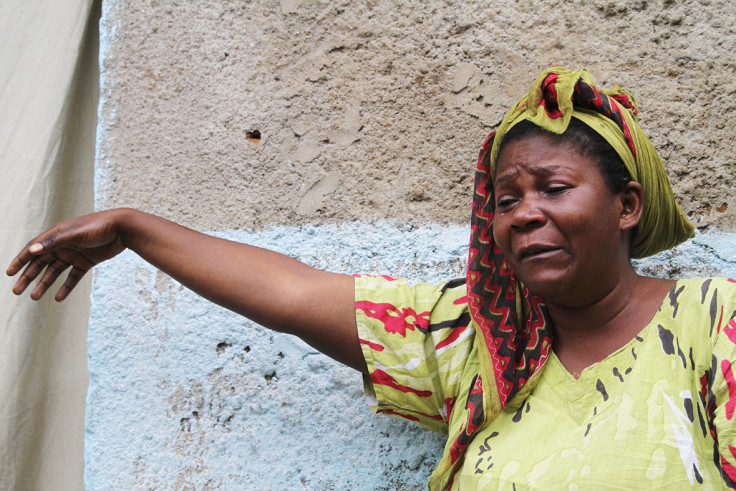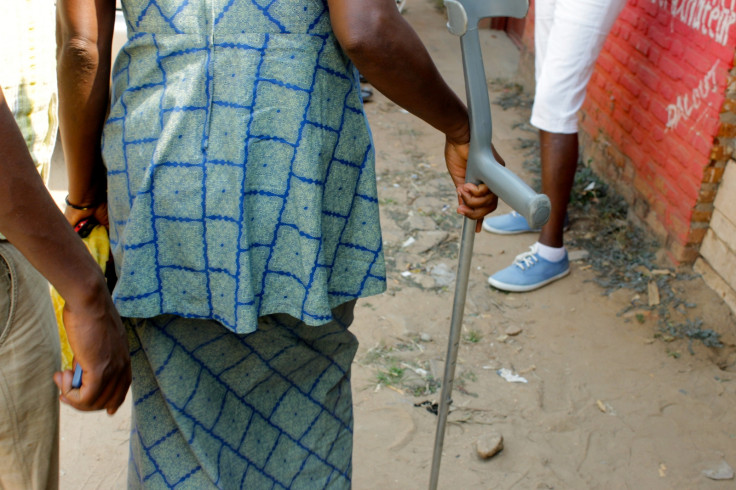Burundi: Activists launch #BurundiStopRape campaign amid increasing reports of offence

Amid increasing reports of rape and sexual violence committed against women in Burundi by armed men, civil society leaders have launched an online campaign to raise awareness about the alleged crimes.
On Monday (4 January), civil society representatives called on social media users to tweet the hashtag #BurundiStopRape as women are finding themselves increasingly vulnerable to sexual violence.
Burundian human rights activist and one of the leading opponents of President Pierre Nkurunziza's third term, Pacifique Nininahazwe, said: "Let many among us here tweet #BurundiStopRape this Monday to alert the world to the use of rape of women as part of the repression of the opposition to Pierre Nkurunziza's third term."
Nininahazwe spoke of a number of rape cases in so-called "dissenting" neighbourhoods, where protests spread since April, allegedly committed by the Burundian National Police (Police Nationale du Burundi – PNB) and Imbonerakure, members of the ruling CNDD-FDD party's youth wing.
The activist claimed the rapes and sexual assaults could be linked to a song sung by the Imbonerakure, "Pita na Nyamitwe terinda abakeba bavyare imbonerakure" (Pierre Nkurunziza and Willy Nyamitwe [a presidential adviser] impregnate your adversaries so that they bear Imbonerakure).
"The result of such a song would be the phenomenon of rape of women opposed to the third term," Nininahazwe added.
Minister Nivyabandi, meanwhile, agreed the government needed to fight the phenomenon, but said it was not linked to the political crisis of the nation.
Police accused of rape
A man, in his mid-thirties, told IBTimes UK how his mother had been assaulted in one of the districts known as Cibitoke in Burundi's capital Bujumbura. Still living in the capital, his mother refused to speak about her assault by fear for her safety, but her son agreed to describe the attack – under condition of anonymity.
"It was next to our home in Cibitoke. She was nearly raped by policemen of Nkurunziza's guard," recalled the man N., who is in exile in neighbouring Rwanda.
It was early morning, a group of people composed by policemen and Imbonerakure are scattered in the plots of the Cibitoke neighbourhood where there mostly women and girls left. After police asked them if and where they could find young people with (hidden) arms in the area, the women and girls were beaten. Those who had money on the spot gave it to these people to save their lives. Those who did not have it, were asked to take off their clothes and sleep with these people in turns without getting any help. Maman (Mother) was able to escape this evil because she gave them money there and then.
The government, meanwhile, responded to the claims, saying it had no knowledge of reports of rape in the capital. Interior ministry spokesman Therence Ntahiraja told RFI the reports were "lies, rumours" mounted by the opposition with the aim of demonising Burundian security forces.
Burundi's minister of human rights, Martin Nivyabandi, however, acknowledged that he was aware of the issue, highlighting "more than 10,000 cases of gender-based violence" identified so far in 2015.

Rape as 'weapon of war'
Pamella Mubeza, director of the Association des Mamans Célibataires (Association of Single Mothers – AMC) in Burundi, told IBTimes UK she believed the figures may be underestimated.
"The numbers are much larger than that because a Burundian woman or girl cannot easily denounce a rape. Indeed, the socio-cultural education (in Burundi) means talking about sexuality is taboo," Mubeza said, adding that the numbers given by the government "are only those identified by recognised centres".
Women in these neighbourhoods are becoming increasingly vulnerable, she explained, because many men have either been forced into exile, are in prison or in hiding, or have been killed.
"The masculine community has been reduced, both physically and psychologically, and day after day (many more) are kidnapped by the police in collaboration with young people possibly affiliated to the ruling power."
Local journalists have described the use of rape as "a weapon of war", something Mubeza agreed with.
"These sexual violences are used by their perpetrators as weapons of war which only goal is to terrorise the victims, humiliate them and weaken them in order to psychologically hit the opposing camp to which the torturers believe they belong to," she said.
Government should protect women
Women in Burundi are particularly at risk today because, should a girl or woman fall pregnant, abortion is only permitted to save the woman's life and preserve her physical or mental health. Women have to keep the child, or face imprisonment.
Mubeza called on the government to take a stand to protect girls and women living in so-called "dissenting neighbourhoods" as well as those currently imprisoned.
Referring to other reports, Mubeza also highlighted women may have been raped in cells of the PNB.
She added: "The majority of girls and women in prison are there because they are charged with abortion or infanticide, so have already lost their self-esteem and are sexually targeted by horrible acts."
While Mubeza also called on the international community to intervene by setting up a rapid and discrete response system, Nininahazwe appealed to the International Criminal Court (ICC) to "investigate the allegations of international crimes in Burundi and punish the criminals".
© Copyright IBTimes 2025. All rights reserved.






















